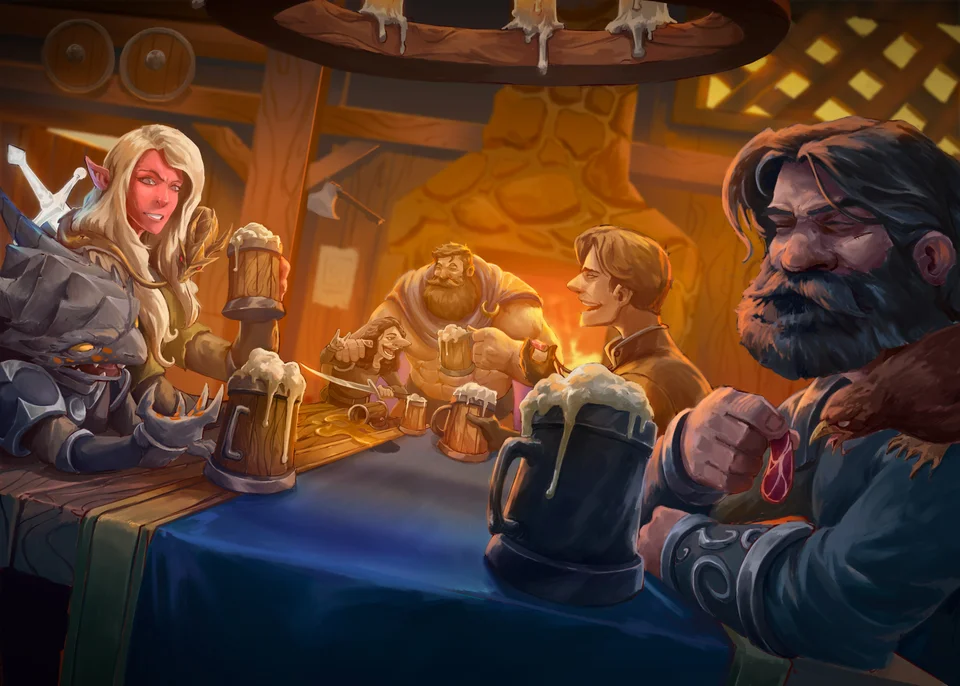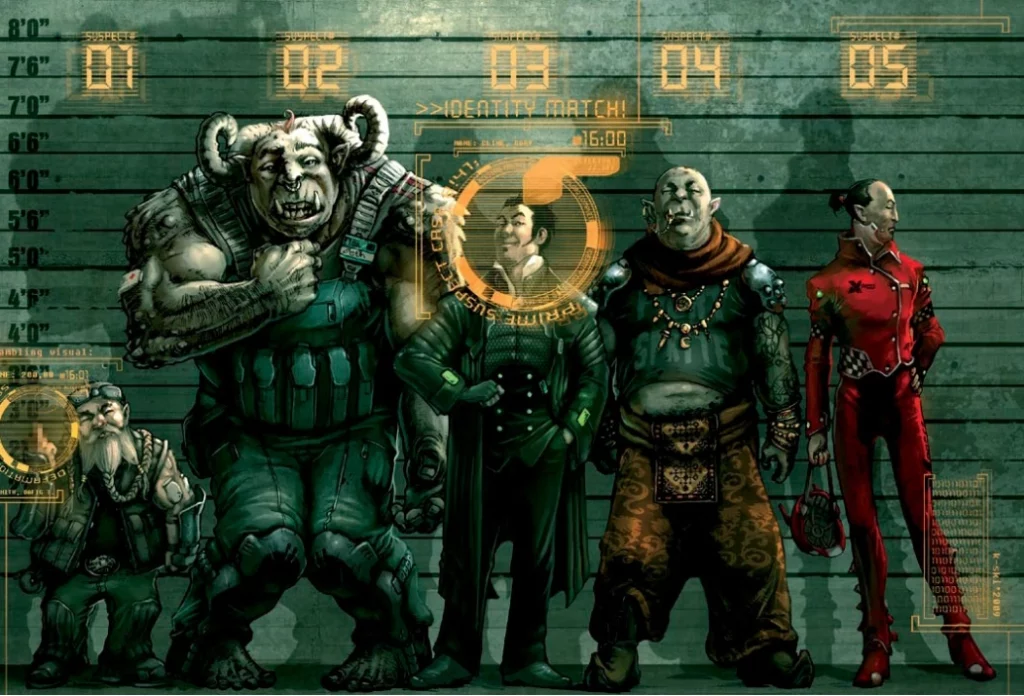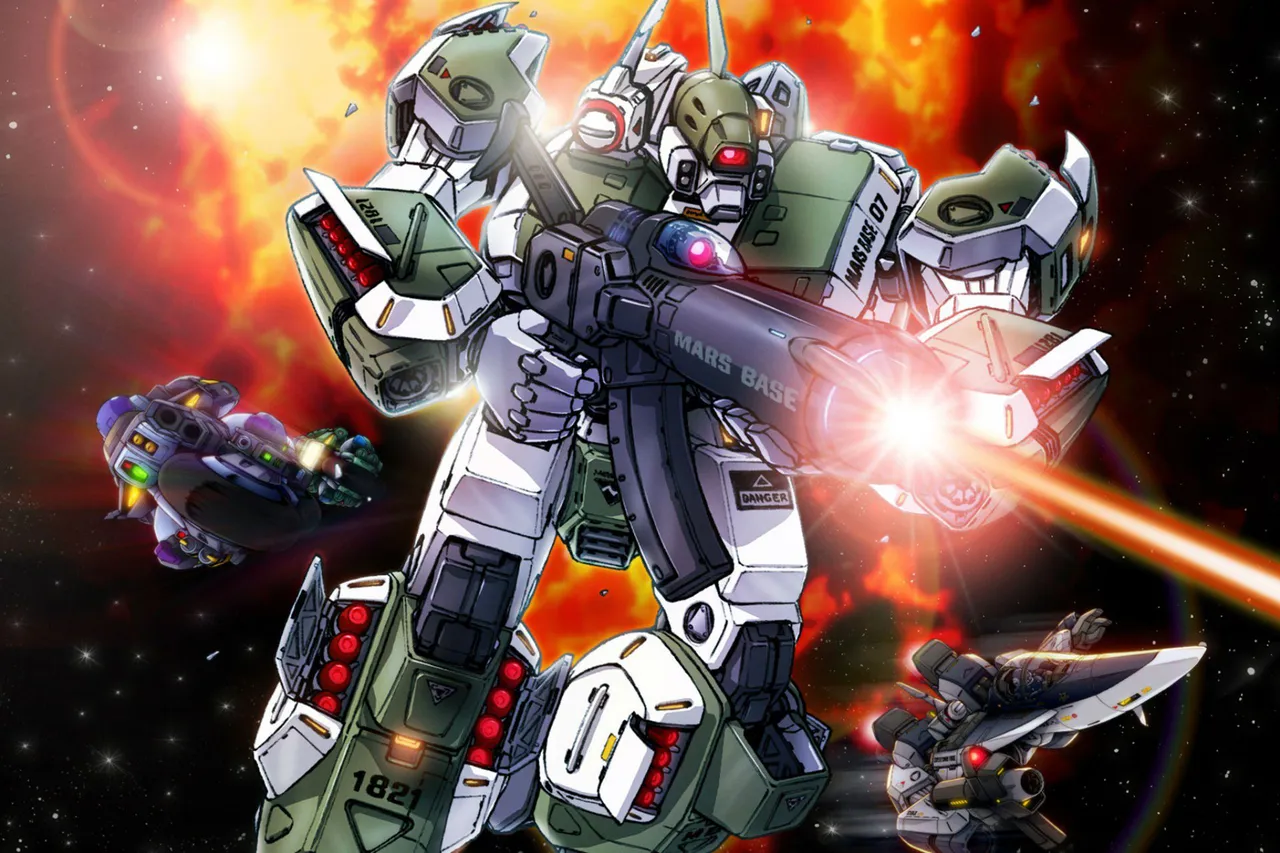by Clipper Arnold. Featured image from Robotech
The beginning of any journey starts with the first step. After you’ve read all your books, gathered friends, and created characters, it’s time to get into the action. Though, where is best to begin your epic tale?
You typically want to establish a scene with a sense of dynamism, give characters a chance to get acquainted if they haven’t yet met, and help quickly establish a “why?” for them all to join forces. Crossing all those bases can be a bit precarious. That is of course, unless they all happen to stumble into:
The Tavern
There’s a time-honored custom of beginning fantasy RPGs in a dimly lit tavern, often with a mysterious hooded stranger granting a quest to a party of adventurers. A boisterous cast of bar patrons and wildcard bartenders are also often a must.

Having played TTRPGs for the better part of two decades, I’ve played many games which began with this basic premise. Sometimes the heroes are urged to rid the goblin scourge in the nearby forest or dungeon. Oftentimes there is a ridiculous bar fight featuring grappling and broken glasses. On more than one occasion there’s been dice gambling or darts games like you might find at an actual tavern. Sometimes there is a problem to be solved with dire rats in the basement, or a mysterious source of poison in the ale. Whatever the case, just like in real life, the allure of a bar can often be the start of a great adventure.
And truthfully, this is a great starting point. There’s a reason many choose to tread the well-trodden path. A trope so ubiquitous has many interpretations and directions to go based on the DM and the synergy of the players. It’s like a folk tale or myth that changes with each re-telling. And this particular one may have originated from a particular scene in the original Lord of the Rings books, where the hobbits first encounter Strider at The Prancing Pony.
The Space Bar
But what if your game isn’t in a fantasy setting? What if it’s a sci-fi game in space? Easy. You can adapt the “you all walk into a tavern” opener to be about a bar on a floating satellite in the middle of a neutral zone. Instead of darts they have space pinball. Instead of drunken dwarfs there are weird aliens. Instead of beer there is … uh … space beer! Which is basically the same but spacier: a neon green or purple liquid adorned with psychedelic garnish. Carousing in space is always cooler anyway.

In fact, the cantina scene from the first Star Wars movie is basically just this if you think about it. It’s a way to establish and acquaint new characters in a chaotic environment before they join forces on a shared quest. Attack of the Clones also essentially opens with a bar scene as well.
You can add space truckers, space princesses in disguise with lost puppies, imperial businessmen, traders, and dangerous bounty hunters as well. I actually ran a space bar opener as one of my Session 0s in Nebula Chaos playtesting. I let the players shape the narrative by interacting with various NPCs, which ultimately helped develop into one of several paths to pursue.
Basically the point is that you can adapt the tavern paradigm to any particular setting. For instance, in an urban fantasy game which was more modern and slightly goofy, we had paranormal detectives visiting a hip coffee shop which had some demonic patrons. Players sighted a mysterious local occurrence in a newspaper and decided to pull the thread.
In Media Res
If you’re not gonna go with the classic beverage-based tactic, however, you might as well start with a bang. Literally. Forget the backstories for now and let the PCs prove their worth right off the bat in a trial by fire.
I’ve seen sessions start with players riding atop motorcycles in Korea trying to outrun a bunch of bounty hunters. Or the town square was under attack from an evil cult or a group of brigands and the players needed to quickly pick up their bows and fight. I also maintain that the beginning of The Witcher 2 is one of the best in media res openers in video games I’ve seen. You’re instantly slinging swords and running away from a dragon blowing up a bridge with its flame breath all within the first 10 minutes. This opener’s all about hitting hard and fast.

One of my favorite openers I’ve personally ran with this was at the start of a mecha RPG using The Mecha Hack. The game was basically a retelling of important events of the French Revolution, but in space and with mecha. The revolutionary flagship was called The Guillotine, for example, and the campaign began with revolutionaries storming the prison planet Bastille. The players were prisoners on the inside for one reason or another, and their first session was basically a prison break. They had to escape their cell block, locate their mechs, and take on imperial guard mecha in a hail of explosive fire before joining the revolution.
The appeal of kicking it into action right off the jump is that players can quickly start tossing dice and get some cheap exciting adrenaline thrills pretty immediately after pulling up to the table, rather than waiting to suss out the lore, world, and various narrative elements. You get to experience the narrative in effect as it’s unfolding and smacking you in the face, and players’ characters, backstories, and reasons for being end up being quickly demonstrated, developed or fall into place.
A Flashback/Flashforward
Alternatively, you can open with a brief moment of action and have the pieces fall back into place. This one can be tricky to pull off, but is intriguing.
We started a Shadowrun campaign once with players being handcuffed and held in the back of a police vehicle. One of the cops started saying, “I can’t believe you did all that and got away with it for so long,” before it faded back to them sitting at an apartment and getting a mysterious phone call. Honestly, sometimes the pieces don’t always add up to that moment in the narrative, but it can still read as a fortune that can someday come true; making for an interesting opener.

Gathered to Do a Job
This is actually one of the more standard openers, but it can be tough to get right. One of the biggest problems to crack with any RPG opener is getting PCs together for a shared purpose. And, one of the easiest outs is, of course, that various people from different walks of life often gather in order to collect a paycheck.
In fantasy games, PCs can often begin the game as heroes-for-hire after responding to a guild, noble person, or town council’s quest bulletin. In Shadowrun, a mysterious employer (“Mr. Johnson”) often gathers a group of gnarly mercenaries to do a tough job. In a sci-fi setting, you can assemble a ship of bounty hunters to take out a bad guy or recover a stolen object.
Yeah, some characters thrive on the thrill of adventure, being part of team, or relishing an opportunity to excel at what they do best, but ultimately, all the characters in this opener are pretty much unified as freelancers looking to stab things in exchange for cold hard cash or shiny gold coins. And that’s cool. Semi-ruthless mercenaries, bounty hunters, and smugglers are great tabletop RPG characters for this type of thing.

This is a good opener for a quick and dirty roleplaying when you don’t have a Session 0 and just want to get players right to the quest. Ideally, however, you want to flesh it out or give it a twist if you can. Session 0s can be instrumental for detailing out how characters know each other and their reason for being in the group. If one of the PCs isn’t a treasure-hungry brigand, for example, maybe he’s a partner of his brother who is; or maybe they both need to raise funds in order to heal a dying relative. Sometimes money alone isn’t enough to motivate and keep a campaign going, especially if your characters are commanding a high enough price to retire after a big job!
Alternatively, doing a job or gathering for a shared task doesn’t necessarily need to be money-driven either. Characters can be assigned a task after coming together to join the ranks of revolutionaries or a military. Maybe they’ve been assembled to protect their town, or to prevent a horrible apocalyptic scenario and they’re the only team with the stuff to get it done (or the only heroes available).
One of the ways in which I would typically start Justice Velocity previously is that player characters are black-bagged and taken to a secret location of a shadowy government agency. A guy in a suit claims he has dirt on all the characters and can put them away for life unless they’re willing to take on a special mission.
This side-steps the money-driven component, which can be difficult to assign a workable and replicable value to in modern or futuristic settings for something beyond the scope of a one-shot mission. However, it also takes a certain degree of choice away from players, as well as the agency to define their own characters’ collective purpose in the narrative.
Again, developing complex motivations and shared purpose is important for this opener, as with all the rest. Sometimes you can get that from a Session 0 or sometimes it develops from the course of play. And players who rake in a bunch of gold from a few dungeons might need more of a reason to exist. Overall, these are some quick excuses to get the PCs together and acquainted before getting onto their larger narrative.
Conclusion
Ultimately, these are all just some cool ideas and inspiration to get your session going. There’s no real right or wrong way to do things as long as everyone’s having a good time.
And, by and large, most PCs will be willing to play nice and find a reason to get along if you point them in the direction of a quest or task to accomplish. These are just a few thoughts on how to make that process more cool, believable, interesting, and fun.
Whether it begins in a bar, with a bang, with a bounty, or mixture of all, or something else entirely, beginning a campaign is always exciting and an opportunity to try out a fresh opening sequence. How you begin can certainly impact the journey and the tone of a campaign, but remember it all starts with the first step.
